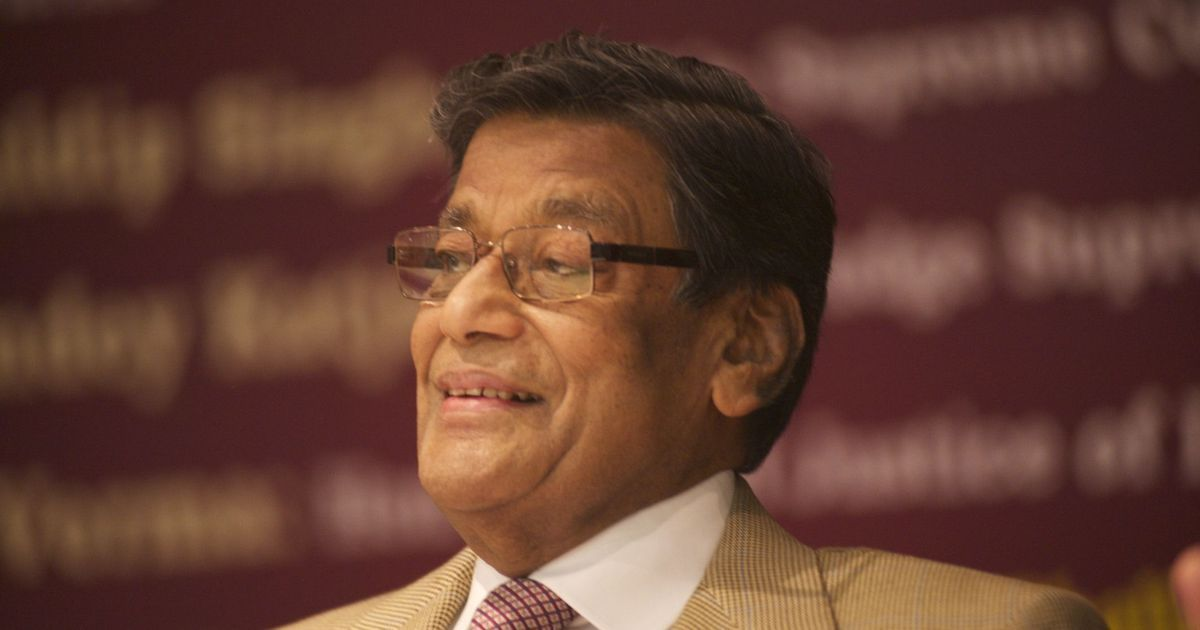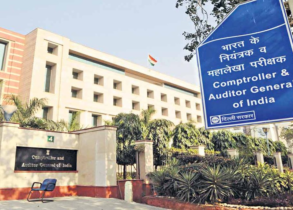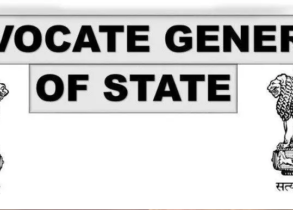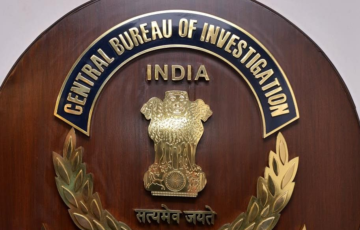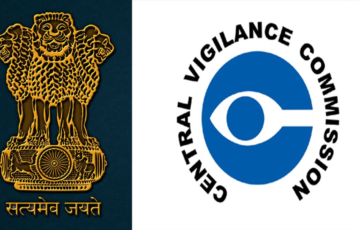ATTORNEY GENERAL OF INDIA
Introduction:
- The Attorney General of India (AG) is an integral component of the Union Executive and holds the distinction of being the highest legal authority in the nation.
- The establishment of the office of the AG of India is enshrined in Article 76 of the Constitution.
- The Attorney General of India (AG) serves as the primary legal consultant to the Government of India.
- Its appointment is made by the President of India, with their tenure subject to the President’s discretion.
- The AG’s primary duties encompass providing legal guidance to the government across a wide spectrum of legal issues.
- This includes tasks such as formulating and construing legislation, overseeing legal proceedings, and representing the government in the judicial system.
- Additionally, the AG possesses the authority to advocate on behalf of the Government of India in any Indian court.
- This is a prestigious and significant position in the Indian legal system.
- The Solicitor General of India and Additional Solicitor Generals of India help the Attorney General of India carry out their official duties.
Appointment and Eligibility:
- The Attorney General is appointed by the President based on the advice of the government.
- The appointee must meet the prerequisites for a Supreme Court judge, which entail being an Indian citizen, having a minimum of five years’ experience as a high court judge, practicing as an advocate in a high court for at least ten years, or being recognized as an eminent jurist at the President’s discretion.
- Tenure: The Constitution does not stipulate a fixed duration for the Attorney General’s term in office.
- Removal: The Constitution does not provide a framework for the removal of the Attorney General. They serve at the pleasure of the President, who holds the authority to terminate their position at any time.
Role and Functions of the Attorney General of India:
- Providing counsel to the GoI on legal matters referred by the President. This includes advising on a wide range of legal issues, such as constitutional law, criminal law, civil law, and international law. The AG may also be asked to advise on specific cases or legislation.
- Undertaking other legal duties assigned by the President. This could include anything from drafting government contracts to representing the GoI in international arbitration proceedings.
- Serving as the GoI’s representative in all Supreme Court cases and any High Court cases involving the GoI. This means that the AG is responsible for arguing the GoI’s case in court and presenting evidence on its behalf.
- Acting as the GoI’s representative in matters referred to the Supreme Court by the President under Article 143 (President’s authority to consult the Supreme Court) of the Constitution. This is a special power that allows the President to consult the Supreme Court on any legal question of public importance. The AG is responsible for representing the GoI in these proceedings.
- Executing functions vested in them by the Constitution or other legislation. This includes a variety of functions, such as drafting and issuing opinions on legal matters, and appearing in court on behalf of the GoI in cases involving constitutional law or other important legal questions.
Rights and Limitations of the Attorney General of India (AGI)
Rights:
- Independent Legal Opinion: The AGI possesses the right to offer independent legal opinions and is not obligated to follow the Government’s directives on legal matters, allowing them to provide legal counsel, even if it contradicts the government’s stance.
- Appearance in Any Court: The AGI is authorized to represent the Government of India in any court within the country.
- Immunity from Prosecution: The AGI enjoys immunity from legal action for acts or omissions carried out in the execution of their duties.
- Remuneration: The AGI is entitled to receive compensation as determined by the President of India.
Limitations:
- Political Appointment: The Attorney General of India is appointed by the President of India on the advice of the Union Cabinet, which is typically led by the Prime Minister. This appointment is a political one, as it is based on the political leadership’s recommendation.
- For instance, if there is a change in the ruling political party or a change in the Prime Minister, a new Attorney General might be appointed.
- Alignment with Government Policies: While the AGI is expected to support the government’s policies and programs, they retain the freedom to advise the government if they believe a particular policy or program is illegal or unconstitutional.
- Confidentiality: The AGI is required to maintain the confidentiality of their interactions with the government.
- For instance, during a discussion on a potential legal challenge or a sensitive matter, the Attorney General is required to maintain the confidentiality of these interactions to preserve the integrity of their role.
- Prohibition on Private Practice: Once appointed as the Attorney General of India, the individual is prohibited from engaging in private legal practice. This means they cannot represent private clients or take up cases that are unrelated to their role as the government’s chief legal advisor. This prohibition ensures that their primary focus is on their responsibilities as the Attorney General.
- It’s worth noting that these rights and constraints pertaining to the AGI have evolved over time through judicial interpretations and established conventions, rather than being explicitly outlined in the Indian Constitution.
Examples of the AGI’s Rights and Constraints in Practice:
- In 2018, the AGI provided advice to the Indian government that withdrawing from the Paris Agreement on climate change would necessitate changes to domestic law. The government accepted this counsel.
- In 2020, the AGI represented the Government in the Supreme Court during the defense of the Citizenship Amendment Act, which was subsequently upheld by the Court.
- In 2021, the AGI declined to prosecute a former government official accused of corruption, a decision based on legal advice received.
The Attorney General of India (AGI) holds a significant position within the Indian legal system. Their rights and constraints are designed to facilitate the delivery of unbiased and impartial legal counsel to the Government of India, all the while ensuring transparency and accountability to the public.
|
Solicitor General of India
- The Solicitor General of India and the Additional Solicitor General of India play crucial roles in providing legal advice and representing the government in various legal matters. While Article 76 of the Indian Constitution specifically mentions the Attorney General, it does not explicitly mention the Solicitor General or Additional Solicitor General.
- The roles and functions of the Solicitor General and Additional Solicitor General are not explicitly laid out in the Indian Constitution but have evolved through conventions and government orders. These law officers are appointed by the President of India on the advice of the Union Cabinet. Their primary duties include representing the government in legal proceedings, providing legal advice, and assisting the Attorney General in fulfilling their official responsibilities.
- The Solicitor General is considered the second-highest law officer in the country, and the Additional Solicitor General assists both the Attorney General and the Solicitor General in handling legal matters on behalf of the government.
- The absence of specific mention of the Solicitor General and Additional Solicitor General in the Constitution allows for flexibility in their roles and responsibilities and allows for adjustments as needed over time. These positions have become integral to the legal system and the functioning of the government in India, even though they are not explicitly outlined in the Constitution.
UPSC PREVIOUS YEAR QUESTIONS
1. Consider the following statements: (2022)
1. Attorney General of India and Solicitor General of India are the only officers of the Government who are allowed to participate in the meetings of the Parliament of India.
2. According to the Constitution of India, the Attorney General of India submits his resignation when the Government which appointed him resigns.
Which of the statements given above is/are correct?
a) 1 only
b) 2 only
c) Both 1 and 2
d) Neither 1 nor 2
2. Consider the following statements: (2013)
Attorney General of India can-
1. take part in the proceedings of the Lok Sabha
2. be a member of a committee of the Lok Sabha
3. speak in the Lok Sabha
4. vote in the Lok Sabha
Which of the statements given above is/are correct?
a) 1 only
b) 2 and 4
c) 1, 2 and 3
d) 1 and 3 only

